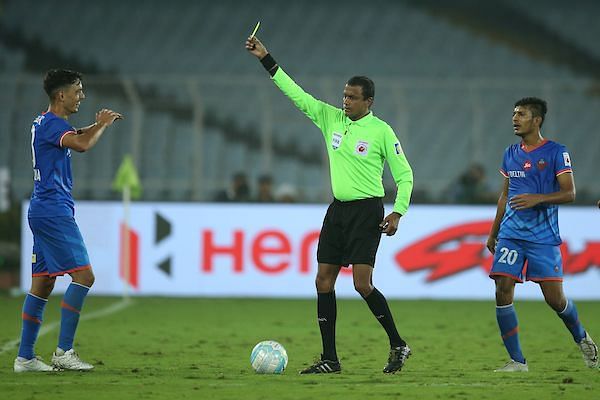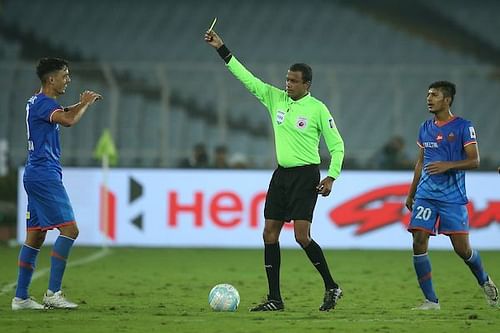
ISL 2017/18: Low pay and constant criticism affect morale of Indian referees

What’s the story?
From the very beginning, the ISL has been plagued by poor refereeing, an area which the league insists on keeping largely desi, that has cost teams. Many of the coaches have spoken out against this and have been subsequently penalised.
The referees’ chief, on his part, has put the blame on players not fully aware of the rules. Moreover, the Indian Express reports that the referees are always complaining of low morale because of pay disparity.
Goutam Kar, the AIFF’s director of referees, though, feels that the standard of refereeing has ‘improved’ this year.
“If you compare it to previous years, the quality has certainly improved. There are a few mistakes, of course, but they can’t be called blunders,” Kar said. “The performance of match officials is thoroughly analysed. We have assessors on site apart from the remote assessors, who watch the matches on television and give their feedback.
“Most of the referees are officiating in such a big event for the first time,” he said. “It’s a scenario similar to Indian players. Just like they are expected to improve by playing alongside the foreigners, so are the referees.”
In case you didn’t know…
Recently, FC Pune City coach Ranko Popovic had gone on a public rant on poor refereeing, branding the referees as ‘jokers’ and had implied bias against his side. The AIFF, of course, had suspended him and slapped a substantial fine.
Popovic is not the only one who has been agitated of late. Miguel Portugal of Delhi Dynamos and John Gregory of Chennaiyin FC were both sent off for protesting the referee’s decisions while Juliano Fontana, the assistant coach of Mumbai City FC, was penalised for ‘pushing’ the referee.
The heart of the matter
The franchises are indeed not too happy with the AIFF meting out such penalties. One of the officials felt it was like being punished for saying the truth. He further asked that if coaches were punished for speaking out, then the referees should also be penalised for making major mistakes. The fact that there are so few qualified Indian referees, however, makes it difficult for the AIFF to take actions against them.
Kar did not hesitate to put the blame on the players and coaches for having insufficient knowledge of the laws of the game. He further mentioned that with the ISL and the I-League running parallelly, most referees have to put in double shifts. It takes a toll on their overall performance.
Another factor that adds to the low morale is that the foreign referees get paid approximately Rs 1 lakh per match by IMG-R, while their Indian counterparts receive only Rs 10,000.
What’s next?
While steps have already been taken against the coaches who have spoken out against the referees, it remains to be seen how the refereeing levels are improved.
Author’s take
The bottom line remains that the standard of refereeing this season has not been quite up to the mark. Kar's statements only show that the grim larger picture is being ignored and that there is a failure to acknowledge the fact that the country does not have enough top-class officials.